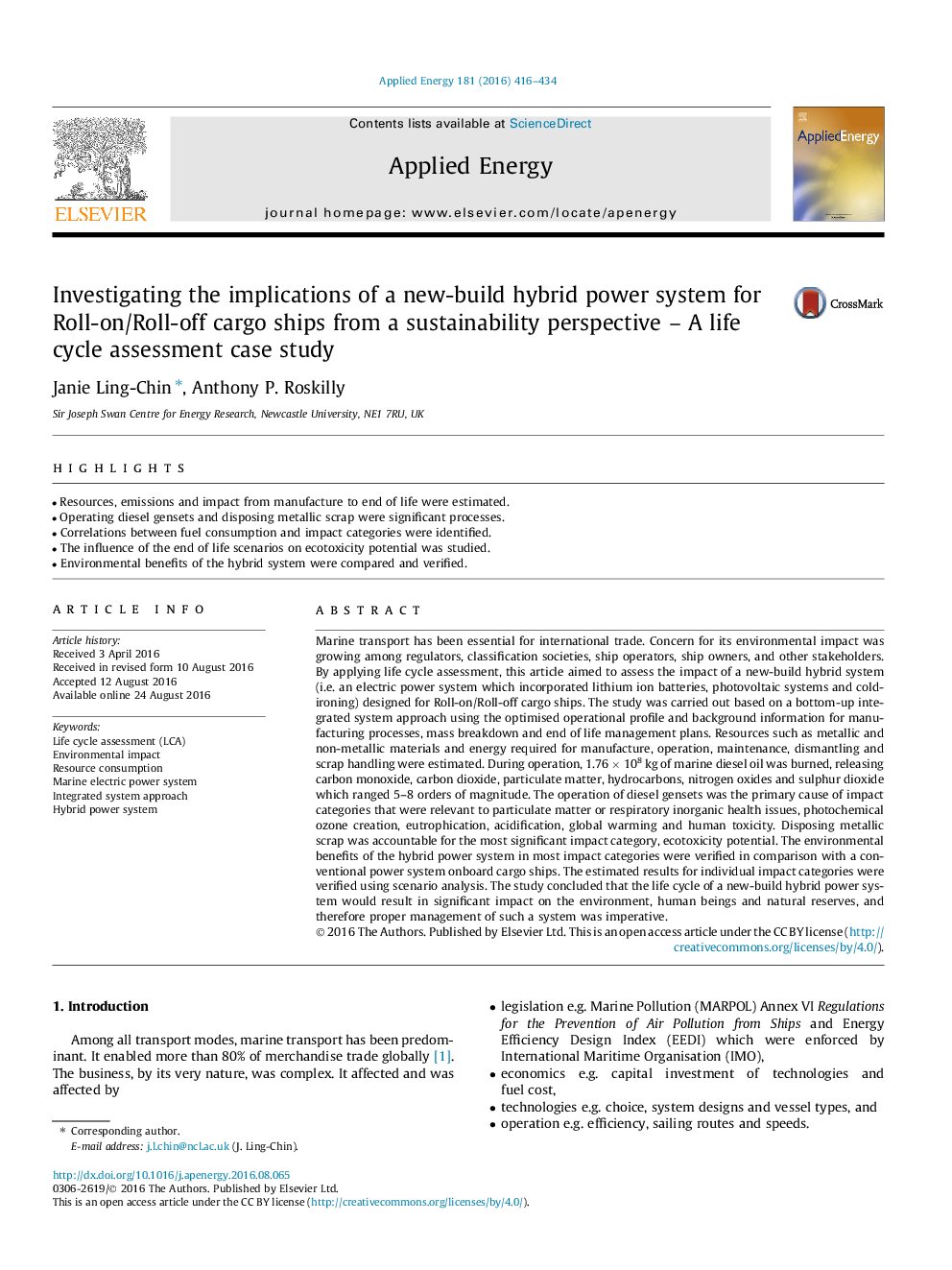| Article ID | Journal | Published Year | Pages | File Type |
|---|---|---|---|---|
| 4917170 | Applied Energy | 2016 | 19 Pages |
â¢Resources, emissions and impact from manufacture to end of life were estimated.â¢Operating diesel gensets and disposing metallic scrap were significant processes.â¢Correlations between fuel consumption and impact categories were identified.â¢The influence of the end of life scenarios on ecotoxicity potential was studied.â¢Environmental benefits of the hybrid system were compared and verified.
Marine transport has been essential for international trade. Concern for its environmental impact was growing among regulators, classification societies, ship operators, ship owners, and other stakeholders. By applying life cycle assessment, this article aimed to assess the impact of a new-build hybrid system (i.e. an electric power system which incorporated lithium ion batteries, photovoltaic systems and cold-ironing) designed for Roll-on/Roll-off cargo ships. The study was carried out based on a bottom-up integrated system approach using the optimised operational profile and background information for manufacturing processes, mass breakdown and end of life management plans. Resources such as metallic and non-metallic materials and energy required for manufacture, operation, maintenance, dismantling and scrap handling were estimated. During operation, 1.76Â ÃÂ 108Â kg of marine diesel oil was burned, releasing carbon monoxide, carbon dioxide, particulate matter, hydrocarbons, nitrogen oxides and sulphur dioxide which ranged 5-8 orders of magnitude. The operation of diesel gensets was the primary cause of impact categories that were relevant to particulate matter or respiratory inorganic health issues, photochemical ozone creation, eutrophication, acidification, global warming and human toxicity. Disposing metallic scrap was accountable for the most significant impact category, ecotoxicity potential. The environmental benefits of the hybrid power system in most impact categories were verified in comparison with a conventional power system onboard cargo ships. The estimated results for individual impact categories were verified using scenario analysis. The study concluded that the life cycle of a new-build hybrid power system would result in significant impact on the environment, human beings and natural reserves, and therefore proper management of such a system was imperative.
